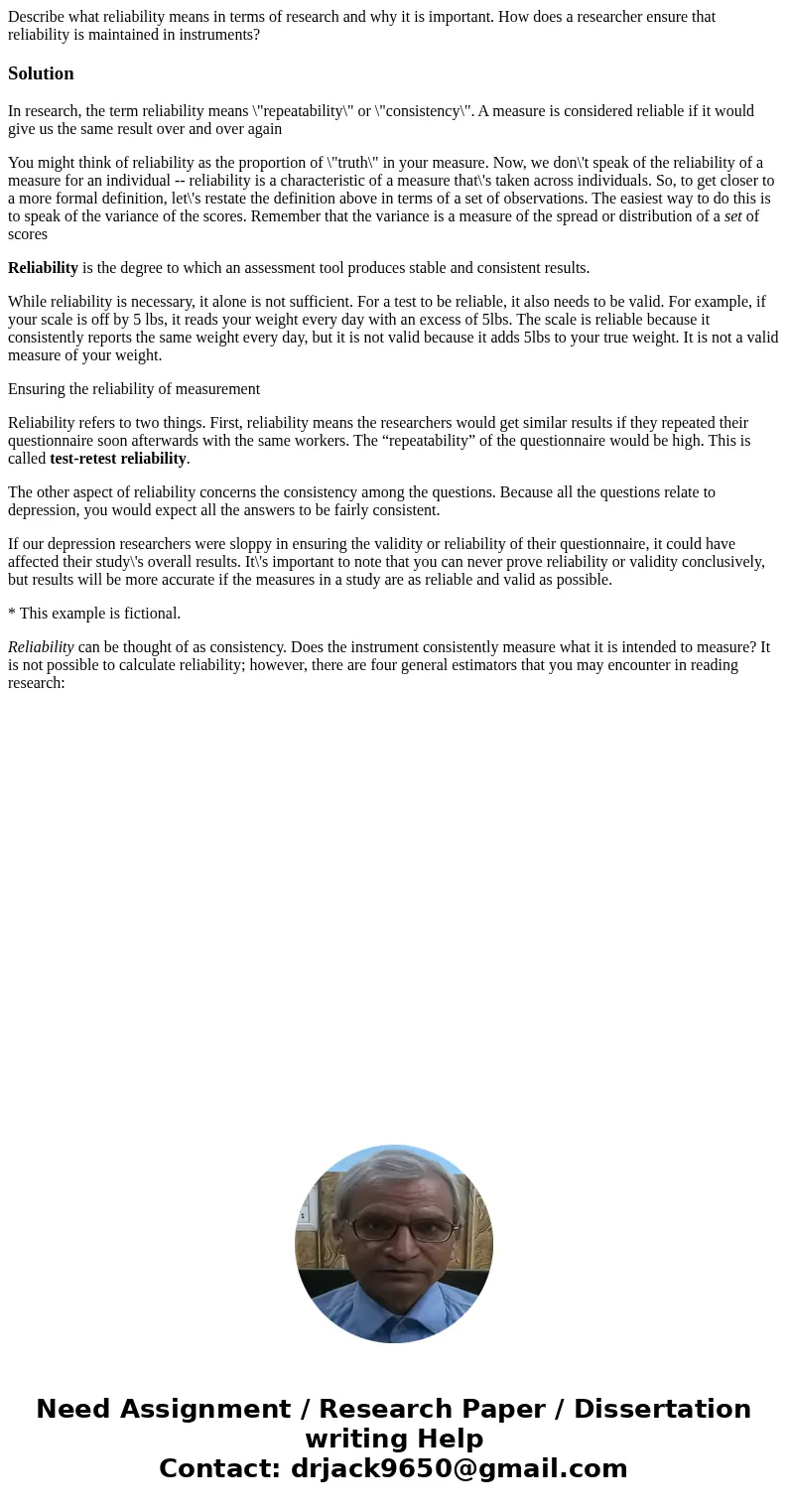Describe what reliability means in terms of research and why
Describe what reliability means in terms of research and why it is important. How does a researcher ensure that reliability is maintained in instruments?
Solution
In research, the term reliability means \"repeatability\" or \"consistency\". A measure is considered reliable if it would give us the same result over and over again
You might think of reliability as the proportion of \"truth\" in your measure. Now, we don\'t speak of the reliability of a measure for an individual -- reliability is a characteristic of a measure that\'s taken across individuals. So, to get closer to a more formal definition, let\'s restate the definition above in terms of a set of observations. The easiest way to do this is to speak of the variance of the scores. Remember that the variance is a measure of the spread or distribution of a set of scores
Reliability is the degree to which an assessment tool produces stable and consistent results.
While reliability is necessary, it alone is not sufficient. For a test to be reliable, it also needs to be valid. For example, if your scale is off by 5 lbs, it reads your weight every day with an excess of 5lbs. The scale is reliable because it consistently reports the same weight every day, but it is not valid because it adds 5lbs to your true weight. It is not a valid measure of your weight.
Ensuring the reliability of measurement
Reliability refers to two things. First, reliability means the researchers would get similar results if they repeated their questionnaire soon afterwards with the same workers. The “repeatability” of the questionnaire would be high. This is called test-retest reliability.
The other aspect of reliability concerns the consistency among the questions. Because all the questions relate to depression, you would expect all the answers to be fairly consistent.
If our depression researchers were sloppy in ensuring the validity or reliability of their questionnaire, it could have affected their study\'s overall results. It\'s important to note that you can never prove reliability or validity conclusively, but results will be more accurate if the measures in a study are as reliable and valid as possible.
* This example is fictional.
Reliability can be thought of as consistency. Does the instrument consistently measure what it is intended to measure? It is not possible to calculate reliability; however, there are four general estimators that you may encounter in reading research:

 Homework Sourse
Homework Sourse